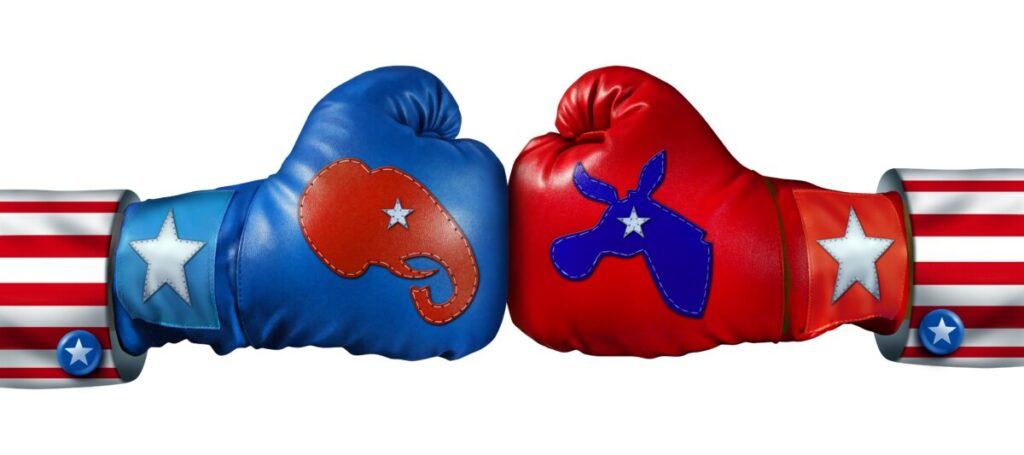
Waco, Texas has succumbed to many changes throughout its time as it is home to many significant spotlights in current-day history. Considering its constant exposure to the spotlight, one might ask if Waco has the same political trends as the rest of Texas- the majority of the state being Republican and considered conservative. In relation to the rest of the state, is Waco, Texas a liberal city?
Waco, Texas is not a liberal city, as it is a moderately conservative city. In the 2020 presidential election, 60.8% of McLennan County- where Waco is located- voted Republican, 37.5% voted Democratic, and 1.7% voted Independent.
There are areas within Waco that are more liberal than other parts of neighboring areas, however, the city remains primarily conservative overall.
Changes Within Waco
Waco, Texas is quite a historical landmark. Also referred to as, “the heart of Texas”, Waco is known for being the origin spot of Dr. Pepper, various significant halls of fame, as well as the home of Baylor University. Waco has also found celebrity attention from HGTV’s Joanna and Chip Gaines from Fixer Upper as well as YouTube and internet sensations Brooklyn and Bailey McKnight who attended Baylor University.
In regards to politics, all this attention is worth noting as new ideas and exposure can bring in new political stances. Attractions bring in tourists, colleges bring in young people, and media takes globalization to an entirely new level. Because of this, it is completely feasible that even in a predominately conservative state like Texas, the city of Waco could change its political course, so it’s something interesting to keep an eye on.
Presidential Elections
Waco is the seat of McLennan County, Texas. As stated previously, McLennan leans heavily towards voting for the Republican Party, which can also be interpreted to be voting conservatively. In 2020, during the presidential election between Donald Trump and Joe Biden, 60.8% of McLennan County was reported to have voted for the Republican party while 37.5% was reported to have voted for the Democratic Party. These numbers support the overall consensus of Texas being a “red” state rather than a “blue” one. Waco falls under this umbrella, as it is within the jurisdiction of McLennan County.
between Donald Trump and Joe Biden, 60.8% of McLennan County was reported to have voted for the Republican party while 37.5% was reported to have voted for the Democratic Party. These numbers support the overall consensus of Texas being a “red” state rather than a “blue” one. Waco falls under this umbrella, as it is within the jurisdiction of McLennan County.

Historically speaking, McLennan has always been on the conservative side of the voting climate. In fact, the county has been voting red for every presidential election since the year 2000.
Although Waco remains conservative, McLennan does have a liberal history as well. In 1873, Waco hosted Texas’s first Democratic convention .
.
City Council
The current leaders of Waco city are also lean conservative. Most of the members on the council are openly religious, which is common within conservative and traditional viewpoints. Here is a little bit about each council member head and what they stand for:
- Dillon Meek
 , the City Mayor, has been working with the council since 2015. His term is ending in 2024. Meek’s campaign focused primarily on economic growth, quality of life, marketing, and customer service.
, the City Mayor, has been working with the council since 2015. His term is ending in 2024. Meek’s campaign focused primarily on economic growth, quality of life, marketing, and customer service. - Andrea J. Barefield
 , the representative of District One, signed onto her position with visions of making capital more accessible via education and work, as well as building more affordable housing.
, the representative of District One, signed onto her position with visions of making capital more accessible via education and work, as well as building more affordable housing. - Alice Rodriguez
 , the representative of District Two, has served in the council for 24 years. She works closely with youth, Latin groups, women, and minorities.
, the representative of District Two, has served in the council for 24 years. She works closely with youth, Latin groups, women, and minorities. - Josh Borderud
 , the representative of District Three, has been on the council since 2020. He works with veterans and is also an advocate for mental health.
, the representative of District Three, has been on the council since 2020. He works with veterans and is also an advocate for mental health. - Kelly Palmer
 , the representative of District Four, was elected to the City’s council in 2020. Her focuses were on affordable housing, equitable development, and Covid-19 development and recovery.
, the representative of District Four, was elected to the City’s council in 2020. Her focuses were on affordable housing, equitable development, and Covid-19 development and recovery. - Jim Holmes
 , the representative of District Five, was elected to the council in 2016. He is a successful businessman and supports many nonprofits.
, the representative of District Five, was elected to the council in 2016. He is a successful businessman and supports many nonprofits.
Demographics
Demographics play an important role in voting climates throughout the United States. Within different regions, the context of race, culture, age, gender, and education all contribute to the opportunities, roles, interests, and understandings of the electoral process.
As of August of 2022, Waco’s demographics are predominately white, as 66.89% of the population is caucasian. The other percentiles of the city are as follows:
- 20.65% Black or African-American
- 6.42% two or more races
- 2.23% Asian
- 0.38% Native American
- 0.07% Pacific Islander
A different report provides the following numbers from 2019 :
:
“The 5 largest ethnic groups in Waco, TX are White (Non-Hispanic) (43.3%), White (Hispanic) (27.2%), Black or African American (Non-Hispanic) (20.8%), Other (Hispanic) (3.14%), and Asian (Non-Hispanic) (2.03%). 0% of the households in Waco, TX speak a non-English language at home as their primary language.”
datausa.io
There have been some studies that indicate minorities and younger generations are more likely to vote liberally
that indicate minorities and younger generations are more likely to vote liberally , whereas white, as well as older generations, are more likely to vote conservatively. In line with this research, Waco’s statistics would suggest these findings to be accurate, as it and its surrounding populations consist of a majority of white people. With the majority of its residents being caucasian, it stands to reason that Waco leans conservative rather than liberal.
, whereas white, as well as older generations, are more likely to vote conservatively. In line with this research, Waco’s statistics would suggest these findings to be accurate, as it and its surrounding populations consist of a majority of white people. With the majority of its residents being caucasian, it stands to reason that Waco leans conservative rather than liberal.
Baylor University
Baylor University is a Christian school located in Waco, Texas. It contributes to the voter turnout
is a Christian school located in Waco, Texas. It contributes to the voter turnout because of the many students that attend the school. Its overall voters are not liberal, however, there are more Democratic voters at Baylor than in other areas, comparatively.
because of the many students that attend the school. Its overall voters are not liberal, however, there are more Democratic voters at Baylor than in other areas, comparatively.
In 2022, reports stated that Waco has a population of 143,286 . The University itself composes a large portion of that population. In 2021, Baylor’s official number of students enrolled exceeded 20,000 students. Using these numbers, the school consists of about 14% of the city’s population. While not all students in attendance at the school are registered to vote within the county’s jurisdiction, the University makes special efforts to encourage and enable
. The University itself composes a large portion of that population. In 2021, Baylor’s official number of students enrolled exceeded 20,000 students. Using these numbers, the school consists of about 14% of the city’s population. While not all students in attendance at the school are registered to vote within the county’s jurisdiction, the University makes special efforts to encourage and enable all eligible students to vote if possible. It is also becoming more common for younger generations to participate in elections.
all eligible students to vote if possible. It is also becoming more common for younger generations to participate in elections.
Something interesting to note is that the higher one’s education- if they have a Bachelor’s degree or above- the less likely they are to vote conservatively . Additionally, educated women are less likely to vote conservative. In Baylor, women make up the majority of the population. These could be factors that contribute to why more democratic voters can be found in Baylor than in other areas of Waco.
. Additionally, educated women are less likely to vote conservative. In Baylor, women make up the majority of the population. These could be factors that contribute to why more democratic voters can be found in Baylor than in other areas of Waco.
Liberal voters can be found in other neighborhoods as well, though. Places in Waco that include higher percentages of liberal voters include Parkdale Viking Hills, Waco, Texas ; Richland Hills, Waco, Texas; Kendric, Waco, Texas
; Richland Hills, Waco, Texas; Kendric, Waco, Texas ; and Alta Vista, Waco, Texas. Although, all of these locations, Baylor included, remain conservative overall.
; and Alta Vista, Waco, Texas. Although, all of these locations, Baylor included, remain conservative overall.
Religion in Waco
Research shows that Christians, especially Protestant Christians , are more likely to lean towards Republican or conservative views and not in favor of liberal standpoints.
, are more likely to lean towards Republican or conservative views and not in favor of liberal standpoints.
More than half of Waco has been documented to be religious and of Christian faith , a great proportion of them being Protestant Christians. Overarchingly, 62.8% of the city
, a great proportion of them being Protestant Christians. Overarchingly, 62.8% of the city belongs to a practicing faith.
belongs to a practicing faith.
Numbers have been reported as follows:
as follows:
| Religion | % of People In Waco who Practice said Religion |
| Baptist | 27.5% |
| Catholic | 12.2% |
| Methodist | 7.9% |
| Another Christian Faith | 6.9% |
| Affiliated with Islam | 2.2% |
| Lutheran | 1.6% |
| Pentecostal | 1.6% |
| Church of Jesus Christ | 0.9% |
| Presbyterian | 0.8% |
| Episcopalian | 0.8% |
| Judaism | 0.2% |
| An Eastern Faith | 0% |
Located in Texas, Waco is part of what is known as, “The Bible Belt”. This name refers to a southern region of the United States which is known for being highly religious- specifically Protestant Christian, politically active, and conservative. Historically speaking , the Bible Belt has almost always voted Republican and has very traditionalist viewpoints regarding politics, education, and overall lifestyle.
, the Bible Belt has almost always voted Republican and has very traditionalist viewpoints regarding politics, education, and overall lifestyle.
Research studies have also found that white Christians are more likely to have conservative viewpoints when it comes to political stances within the United States, whereas Christians of minorities may be more likely to lean blue.
are more likely to have conservative viewpoints when it comes to political stances within the United States, whereas Christians of minorities may be more likely to lean blue.
Because Waco consists of predominately Caucasian, protestant Christians within the bible belt, it makes cultural sense that the city leans red and votes accordingly.
Political Forecasting for Waco
Waco’s numbers indicate that the city will remain red and conservative for the foreseeable future, however, it is always a possibility that there could be a change in the winds. Again, whether a city or state leans left or right weighs heavily on the demographics of that area. Realistic factors that would affect the voting climate in Waco would be the following:
Age: Waco is a fairly young city. Its median age of residents is 28.9 years old. As stated previously, younger generations are more likely to vote liberally.
Gender: Waco has a slightly higher population of women. Women have higher statistics of voting than men and are also less likely to vote red.
than men and are also less likely to vote red.
Education: Those with college degrees are more likely to vote blue, as shown by the 2020 presidential election.
are more likely to vote blue, as shown by the 2020 presidential election.
Race: As mentioned before, minorities are more likely to have Democratic viewpoints than Caucasians.
Religion: This is correlated with age and race. Rising generations are being reported to be less religious, and therefore cultures are due to shift and influence the mindsets of American voices.
Whether or not these factors will affect Waco in dramatic or significant ways will depend on its population growth. The more people that move there, the more exposure, expansion, and overall opportunities for these demographics to populate the area will present themselves.
Related Topics:
If you like the article above, here are some other similar articles you should check out!
Is Austin, Texas a Liberal City?
